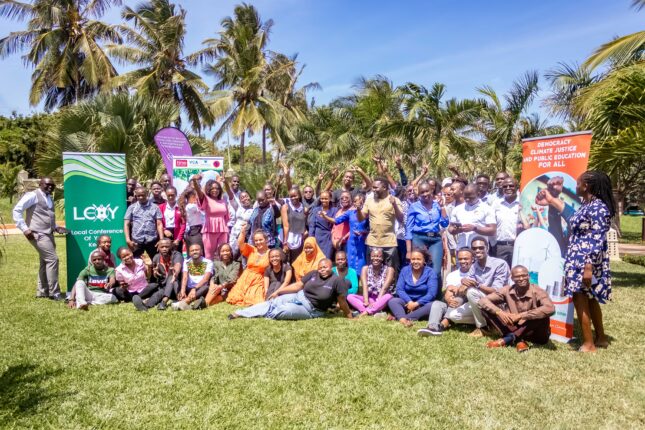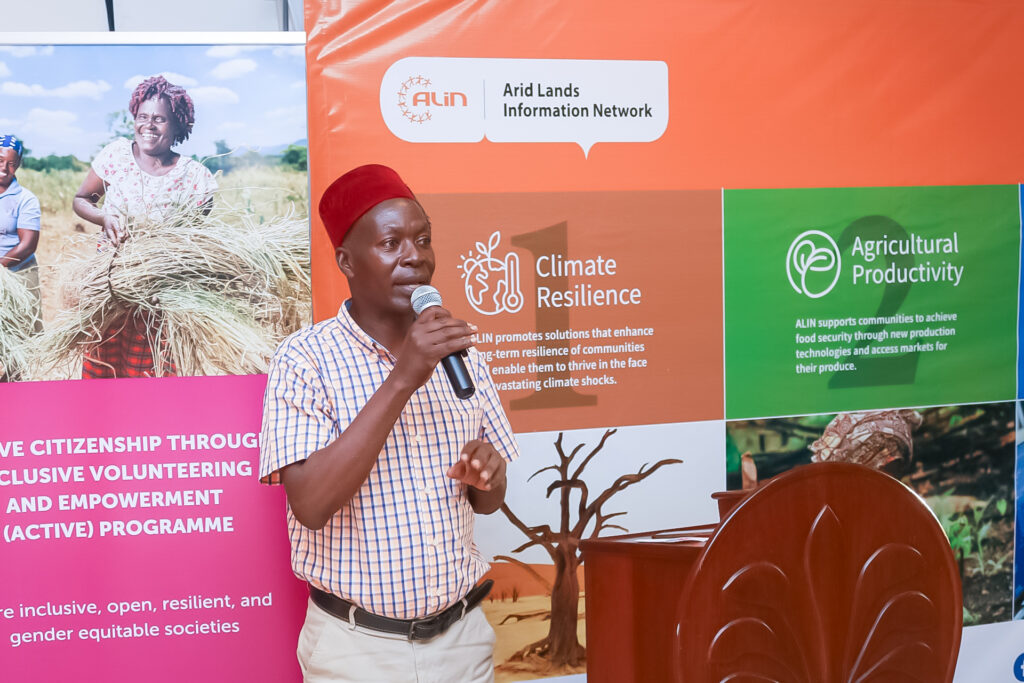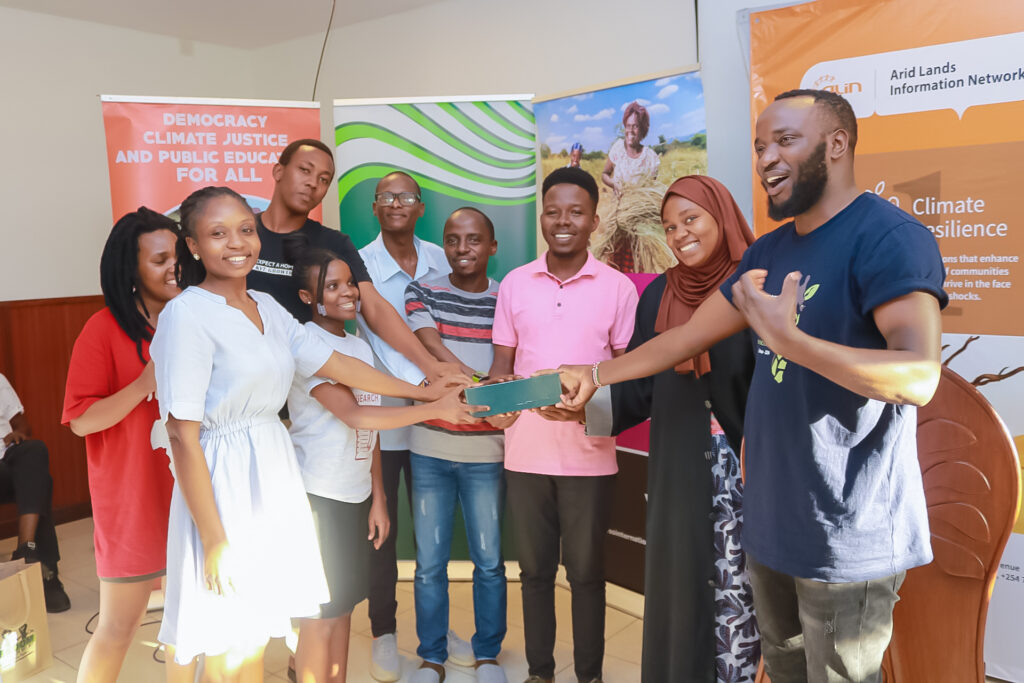
In the Coastal town of Kilifi, Kenya, a transformative event is intricated over three dynamic days, bringing together 50 passionate youth from diverse backgrounds, including the dedicated OneMillionTrees4Kilifi group. The Kilifi Pre-LCOY 2024 conference on Adaptation and Climate Finance was a driving force and action, aligning perfectly with this year’s theme: “Building Generations for Climate Resilience.” This blog delves into the conference’s key discussions, groundbreaking insights, and the vibrant energy that characterized this landmark event.
Setting the Stage for Climate Action
Opening Ceremonies and Expectations
The conference commenced with an inspiring welcome from Mr Sam, who set the tone for the upcoming discussions. Mr. Sam, the MC for the day, provided a comprehensive overview of the conference’s goals, emphasizing the importance of truth and inclusivity in discussions. Participants were encouraged to engage actively and share ideas in an environment respectful of diverse perspectives.
The ground rules were clear: maintain confidentiality when discussing private matters, respect all viewpoints, and engage actively in both discussions and social media interactions using the hashtags #LCOYKE2024 and #JustClimateTransition. The conference aimed to foster a collaborative atmosphere where youth could explore and influence climate policies and finance opportunities effectively.
Introduction to LCOY
Japheth from the LCOY secretariat provided a detailed overview of the Local Conference of Youth (LCOY), highlighting its role in shaping the youth position paper for the Conference of Parties (COP). This year’s theme, “Building Generations for Climate Resilience,” reflects the urgency of preparing future generations to tackle climate challenges. Japheth also outlined the objectives of the pre-LCOY conference, which included capacity building, understanding climate frameworks, and leveraging climate finance opportunities.
Insights from Keynote Speakers
The first day featured an acoustic address by Mr. James, the ALIN Regional Director, who acknowledged the participants’ dedication to climate action and the significance of their contributions. His words resonated deeply, accentuating the vital role of youth in shaping climate policies and driving local initiatives.


Delving into Climate Policy and Finance
Exploring Climate Policy Frameworks
The second day of the conference was marked by a deep dive into climate policy frameworks, led by Wakili Kelly Banda. The session traced the evolution of climate agreements from the establishment of the UNFCCC in 1992 to the anticipated Dubai Climate Accords in 2023. Key milestones included:
- Kyoto Protocol (1997 – 2012): Introduced binding emission reduction targets for developed nations.
- Paris Agreement (2015 – Present): Set ambitious global temperature limits and introduced Nationally Determined Contributions (NDCs).
- Katowice Climate Package (2018): Finalized the rulebook for the Paris Agreement.
- Glasgow Climate Pact (2021): Called for accelerated action on coal power and fossil fuel subsidies.
Kenya’s Climate Policy Landscape
Kenya’s proactive role in climate action was highlighted, with emphasis on its National Climate Change Action Plan (NCCAP) and Climate Change Act (2016). These frameworks showcase Kenya’s commitment to integrating climate action into national development strategies and enhancing resilience across various sectors.
System Thinking and Environmental Sustainability
The concept of system thinking, presented by Lynn, offered a holistic approach to understanding environmental challenges. This methodology emphasizes interconnectedness, feedback loops, and emergent properties within environmental systems. Key applications include:
- Climate Change Mitigation and Adaptation: Identifying leverage points for significant impact and developing comprehensive adaptation strategies.
- Resource Management: Promoting sustainable use of resources and managing ecosystem services.
- Pollution Control and Waste Management: Implementing comprehensive strategies for pollution control and advancing waste reduction.
The session acuated the importance of a systemic perspective in crafting effective environmental policies and solutions.
Hands-On Learning and Networking
The afternoon was dedicated to interactive sessions, where participants engaged in practical exercises related to creating perfect societies and policy development. Networking opportunities allowed attendees to forge connections and collaborate on climate action initiatives.
Unlocking Climate Finance Opportunities
Understanding Climate Finance
Day three focused on the intricacies of climate finance, with Collins Otieno leading a session on key financial mechanisms. The workshop covered:
- Global Frameworks: The Green Climate Fund (GCF) and the Global Environment Facility (GEF) play crucial roles in channeling funds for climate mitigation and adaptation projects.
- Kenya’s Experience: Insights into how Kenya integrates climate finance into its development strategies, supported by international and domestic funding sources.
Funding Opportunities for Youth
Mr. Bob’s session highlighted various funding opportunities for youth-led climate initiatives, including the Next Level Grant Facility and Emergency Grants. These funding mechanisms are designed to support community-based projects and address urgent climate-related challenges.
FLOCA: Financing Locally Led Climate Action
The conference featured a presentation by the Climate Change Director, Kanundu, on the Financing Locally Led Climate Action (FLOCA) fund. FLOCA aims to empower local communities by providing flexible funding and capacity-building support for climate projects. Key features include:
- Local Empowerment: Prioritizing projects led by local stakeholders to ensure context-specific solutions.
- Capacity Building: Enhancing the ability of local organizations to manage and implement climate projects effectively.
- Rapid Response: Providing quick funding responses to address urgent climate challenges.
Kilifi’s Local Climate Action
The director also shared details about the funding allocated to Kilifi County, including 147 million KSH for local climate projects. Notable initiatives include a community seedbed project at Badabaso Ward, demonstrating the tangible impact of FLOCA funding on local communities.
A Call to Action
The Kilifi Pre-LCOY 2024 conference concluded with a celebration of the most engaged participants, who were recognized for their active contributions and innovative ideas. The event not only equipped youth with valuable knowledge and skills but also ignited a sense of urgency and responsibility to drive climate action.


As the conference drew to a close, the collective energy and commitment of the participants showed the potential for youth-led initiatives to effect meaningful change. With a clear understanding of climate policies, finance mechanisms, and system thinking, the youth of Kilifi are poised to lead the charge in building a resilient and sustainable future.
The Kilifi Pre-LCOY 2024 conference was proof of the power of youth advocacy and the importance of collaborative action in addressing the climate crisis. As we look ahead to the main LCOY conference and beyond, the lessons learned and connections made during these three days will undoubtedly shape the future of climate resilience and action.
Here is the link for some of the work the grass root organisation in Kilifi County do. https://www.linkedin.com/feed https://youtu.be/yIrl_bU7ZzQ?si=7cWD4QpnlB2-aHW5


A great piece indeed of what transpired in the three days. Pre-LCOY 2024 Kilifi was huge!
Amazing informative piece!! 👏